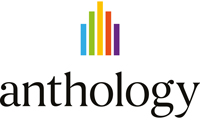The right digital tools can boost access to education in Sub-Saharan Africa and help students prepare for a changing world of work
Sub-Saharan Africa presents a unique proposition for the global higher education sector – particularly with Covid-19 forcing digital transformation on many institutions. Collaboration between the Global North and the Global South is changing in terms of both teaching and research. This provides an opportunity to increase access to education in the region, but the process is far from straightforward.
As part of a webinar hosted by Times Higher Education, in partnership with leading edtech company Blackboard, experts came together to discuss how digital transformation could improve teaching outcomes in the region and some of the challenges they have experienced in democratising education.
For Ravi Srinivasan, pro vice-chancellor of internationalisation and communication at Botho University in Botswana, the fact that his institution had already started on a path towards digitalisation helped massively when the Covid-19 pandemic hit, but hurdles still had to be overcome.
“The biggest challenge which Covid threw at us was accessibility of content for the students when they were off campus,” Srinivasan explained. We’ve had to work out various ways to overcome this challenge and our partnerships with telecom providers and ISPs certainly helped in this regard. Plus, our strength as a technological institution allowed us to swim through the current tide with limited damage to our major structures.”
Tiana van der Merwe, deputy director of the Centre for Teaching and Learning at the University of the Free State in South Africa, noted it wasn’t necessarily access to devices that was slowing digital transformation in the region, but access to data. “I think one of the things that needs to be touched on in terms of data access is that it’s no longer just the institution that needs to play a specific role – it’s all the different stakeholders: private companies, government institutions, students and staff.”
Similarly, support should also be provided to these various stakeholders throughout the digital transformation process. Roger Sithole, group chair of OneConnect, a provider of turnkey technology services to SMEs and Blackboard's partner in Africa, said that new platforms can sometimes be intimidating for educators who have been working in a very specific way for decades. “We need to enable them to become more confident using these platforms, to understand how they can use them to better engage with students.”
Louise Thorpe, vice-president of client experience and consulting (EMEA) for Global Client Experience Organisation at Blackboard, noted that institutions are collaborating to discover more effective ways of working online and what students are demanding from their courses.
“The world of work is also changing, not just the world of education,” Thorpe explained. “A significant conversation that is taking place with institutions right now is around what students want and need from their learning experience that will prepare them to work in an increasingly digital environment.”
Virtual labs, flipped classrooms and digital submissions are among the initiatives being trialled by institutions in response to the pandemic. Joseph M. Wamala, chancellor of the University of St Thomas of Mozambique Business School, also touched upon the rise of new assessment models. “With the introduction of educational technologies, the whole concept of assessment needs to be revisited. It's not just how we assess but also what we are assessing, why we are assessing and when we do that assessment. Many of these concepts that we took for granted have got to be revisited.”
For Sithole, however, the shift that has taken place in the education space over the past 12 months is not really about the technology itself. “Technology is purely an enabler,” he said. “Unesco has noted that of all the continent’s regions, Sub-Saharan Africa is the one with the highest rates of education exclusion. That is both a challenge and an opportunity for institutions. How can they utilise technology to address this?”
The issue of education exclusion is perhaps the most important factor to consider as institutions in Sub-Saharan Africa grow. If they can use digital tools to their advantage, there are significant gains to be made.
Watch the webinar on demand above or on the THE Connect YouTube channel.
Find out more about Blackboard and higher education.






















